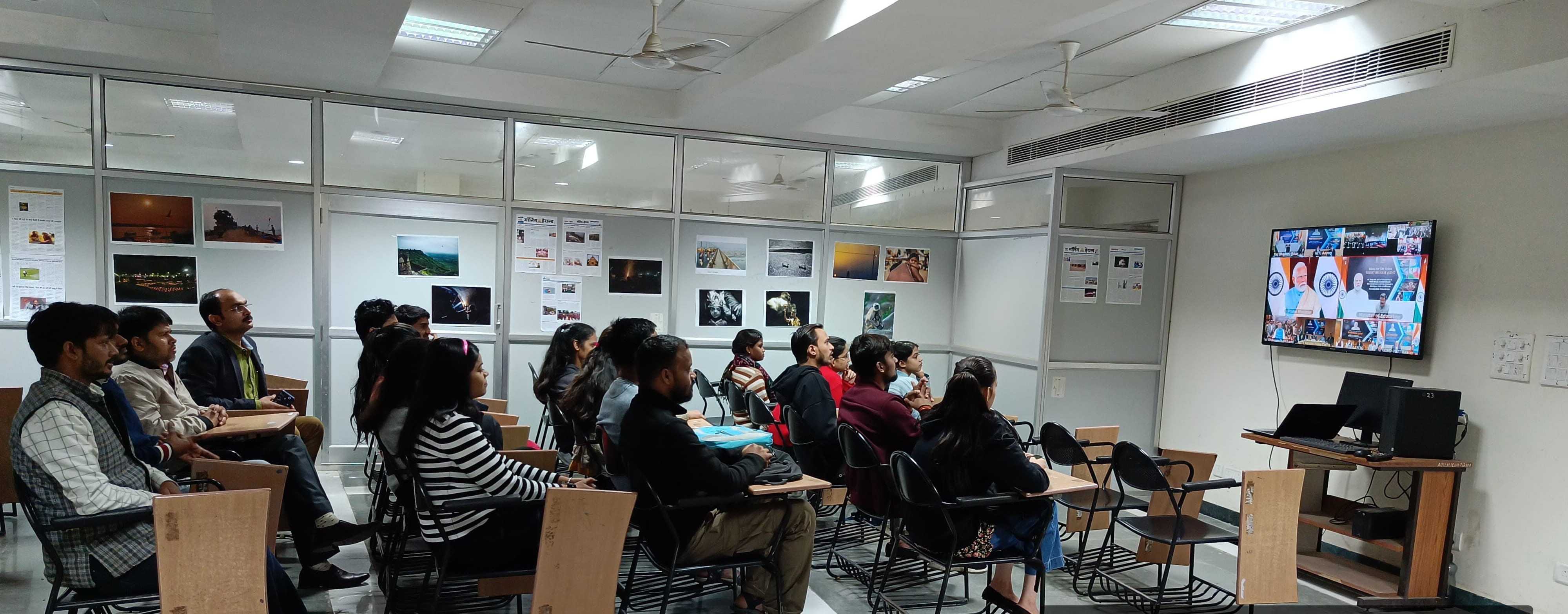Mass Communication & Journalism
Sikkim Global Technical University (SGTU) has established itself as a prominent institution for education in mass communication and journalism, offering a comprehensive program that equips students with the skills and knowledge necessary to excel in the rapidly evolving media landscape. In today’s world, where information flows incessantly and media plays a crucial role in shaping public opinion, the demand for skilled communicators and journalists is greater than ever. SGTU’s programs are designed to nurture creative thinkers and critical analysts, preparing them for diverse roles within the media and communication sectors.
The curriculum for mass communication and journalism at SGTU is meticulously structured to cover a wide array of subjects, including news reporting, print and broadcast journalism, media ethics, public relations, advertising, and digital media production. This holistic approach ensures that students gain a deep understanding of both the theoretical foundations and practical applications of mass communication. The curriculum is regularly updated to reflect current industry trends and technological advancements, ensuring that graduates are well-prepared to navigate the challenges of modern journalism and media.
One of the key features of SGTU’s mass communication and journalism program is its emphasis on hands-on experience. Students are provided with ample opportunities to engage in practical projects, such as producing news segments, conducting interviews, and writing articles for campus publications. The university is equipped with state-of-the-art media labs, studios, and equipment that allow students to gain practical experience in video and audio production, editing, and broadcasting. This experiential learning approach enhances students’ technical skills and builds their confidence in producing high-quality media content.
The faculty at SGTU comprises experienced professionals and scholars from diverse backgrounds in journalism, media, and communication. Their expertise and real-world experience enrich the learning environment, providing students with insights into various aspects of the media industry. Faculty members serve not only as educators but also as mentors, guiding students in their academic and professional pursuits. This mentorship is essential for helping students navigate the complexities of the media landscape and develop their unique voices as communicators.


SGTU places a strong emphasis on critical thinking and ethical journalism. The program encourages students to engage with current events and analyze media representations critically. Students learn the importance of journalistic integrity, accuracy, and ethical standards in reporting. Through discussions and case studies, they explore the role of media in society and the impact of digital technology on news dissemination. This focus on ethics prepares students to be responsible communicators who can contribute positively to society.
Collaboration and teamwork are also integral to the learning experience at SGTU. Students often work in groups on projects that simulate real-world media environments, where cooperation and effective communication are essential. This collaborative approach not only enhances students’ technical skills but also helps them develop vital soft skills, such as leadership, adaptability, and interpersonal communication, which are crucial for success in the media industry.
In addition to the core curriculum, SGTU encourages students to participate in extracurricular activities related to mass communication and journalism. The university hosts various events, including workshops, seminars, and guest lectures featuring industry professionals, allowing students to network and gain insights into current trends and practices in the field. Student-run media organizations, such as newspapers, radio stations, and online platforms, provide additional opportunities for students to apply their skills and showcase their work.
SGTU is also committed to research and innovation in mass communication and journalism. The university encourages students to undertake research projects that explore emerging trends, media technologies, and societal issues. This research-oriented approach not only enriches the academic experience but also prepares students to be critical thinkers and innovators in their professional lives.
As the media landscape continues to evolve with advancements in technology and changes in consumer behavior, SGTU prepares its students to be adaptable and lifelong learners. Graduates are encouraged to stay informed about the latest developments in the media industry and to embrace new technologies and platforms for communication. The university’s career services provide support in job placement, helping students transition smoothly from academia to the professional world.
Situated in Sikkim, a region known for its rich cultural diversity and vibrant community, SGTU offers students unique opportunities to engage with local stories and issues. This connection to the community allows students to develop a nuanced understanding of regional media landscapes and the importance of local journalism. By integrating local narratives into their work, students learn to appreciate the role of journalism in fostering community engagement and social change.
In conclusion, Sikkim Global Technical University is dedicated to providing a high-quality education in mass communication and journalism that meets the evolving needs of the industry. With a comprehensive curriculum, hands-on learning opportunities, experienced faculty, and a focus on ethics and critical thinking, SGTU equips its students with the skills and knowledge necessary to succeed in the dynamic world of media and communication. As graduates embark on their careers, they will be well-prepared to make meaningful contributions to the field of journalism and media, shaping public discourse and influencing societal change in an ever-changing landscape.